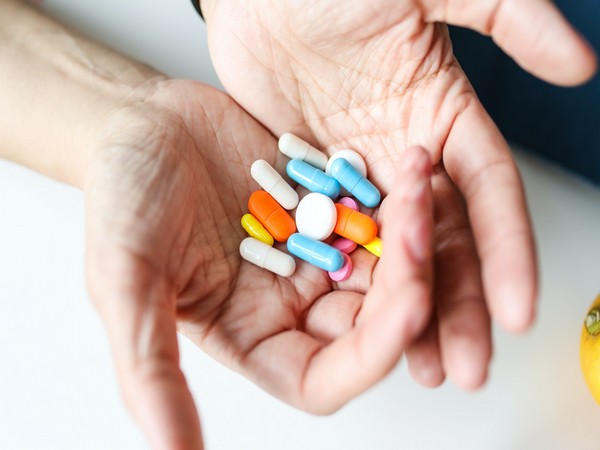Coronavirus: How 'circuit breaker' Singapore searches for treatment, vaccine
It has been about two months since the World Health Organisation (WHO) declared Covid-19 a global pandemic on March 11.

- Country:
- Singapore
By Lee Kah Whye It has been about two months since the World Health Organisation (WHO) declared Covid-19 a global pandemic on March 11.
Many countries that started their lockdowns early to "flatten the curve", to slow the spread of the disease, are beginning to ease movement restrictions. Some have achieved what they set out to do - which is either to reduce the number of cases and deaths due to the novel coronavirus or buy time to allow medical resources to scale up to meet the caseloads. Others are simply re-starting their economies after counting the cost of their lockdowns which has not only impacted livelihoods but lives as well.
Singapore's lockdown - locally termed "circuit breaker", started on April 7 and was initially meant to end May 4 but was on April 21 extended to June 2. The four weeks school holiday in June was brought forward by one month to start May 3. Businesses, especially the smaller retail and food and beverage industry firms are reeling under the strain of the business shut down and some predict that anywhere from 30 to even 80 percent of them are under the threat of closing permanently despite very generous government help for those sectors. Singapore has already started easing some measures gradually from last week. However, June 2 is beginning to look like a date which will be one re-opening milestone out of many and not a date when everything will return to normal suddenly - if they ever will.
India's shutdown which started March 25, was initially meant to last three weeks but has since been extended twice and is now scheduled to end May 17. With the country now divided into zones, some relaxation of lockdown measures has already started within zones where the virus outbreak has been better contained. Despite lockdowns, regardless of the duration, many health experts have warned that it is unlikely Covid-19 will simply vanish. It is a disease we are all likely to have to learn to live with.
A certain degree of normality could return if extensive rapid and reliable testing is widely available. Or, a cure for the virus is found, or a vaccine widely available. The theory is that a vaccine, together with "herd immunity" will prevent the Covid-19 from spreading so easily. Adding to that, if a system can be put in place to take care of the more vulnerable members of society, then the virus may just be treated like the seasonal flu and life can more or less go back to what it used to be.
Singapore, a leading global biotechnological research and manufacturing hub, is one of the centers where research into therapies and vaccines for Covid-19 is taking place. Over the last two decades, billions have been invested in the pharmaceutical industry, mostly in leading-edge research and development, and in infrastructure, education as well as in attracting the best talents around the world to work here.
Today, there are almost 60 pharmaceutical research and development or manufacturing facilities in Singapore, most are foreign-owned. The biotech sector makes up more than four percent of the country's GDP and employs more than 24,000 people. In 2018, Singapore exported USD 7.5 billion worth of medicine to countries like Switzerland, Netherlands, and Japan. Investments in the industry continue to rise year on year. In 2017, fixed asset investment in the industry was USD 310 million, rising from USD 140 million in 2012. Among the well-known global pharmaceutical firms that have a presence in Singapore are Roche, Pfizer, Novartis, MSD, Johnson and Johnson, GSK (GlaxoSmithKline), Amgen, and Abbott. Most have their regional headquarters here.
Expertise in this sector is the reason why Singapore responded well to the initial outbreak of the coronavirus. It took just one week for a research team to successfully culture the virus from an infected person's sample and less than a month for a reliable test kit to be produced once the genome sequence of the virus was known. Besides in Singapore, Singapore's test kit is used in more than 20 other places, including Hong Kong, New Zealand, and the US.
As for search into a vaccine, Singapore's Duke-NUS Medical School has tied up with Arcturus Therapeutics in the US to develop one with clinical trials that are expected to start by August. N.1 Institute for Health and the Institute for Digital Medicine at NUS (National University of Singapore), is also leading the research into using artificial intelligence to search for the best combination of drugs to use in optimal doses to treat COVID-19 patients.
It is, therefore, no surprise that Singapore has one of the highest test rates per million population as well as lowest rates of patients scumbling to the disease at less than 0.1 percent. (Disclaimer: The views expressed in this column are strictly those of the author)
(This story has not been edited by Devdiscourse staff and is auto-generated from a syndicated feed.)
ALSO READ
Climate activist Greta Thunberg detained twice during demonstration in the Netherlands
US accounting watchdog hits KPMG Netherlands with $25 mln over exam cheating -chair
Health News Roundup: Novartis to cut 680 jobs in product development; Arizona's top court revives 19th century abortion ban and more
WHO and Netherlands discuss Global Health Strategy and key strategic goals
Health News Roundup: Novartis begins tender offer for cancer-focused MorphoSys; Arizona ruling puts abortion at center of 2024 presidential election and more










